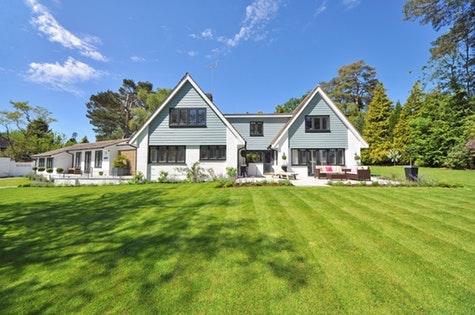When it comes to properties, there are no guarantees on a great return on investment (ROI). Still, there are several things that you as a first-time investor can do to have better chances of hitting the high mark on your ROI. Here are the six strategies that can help you make wiser investment steps.
Consider finances before fixtures
Choosing an investment property is nothing like buying your own home. As emotional beings, we often act irrationally, but that is not the way when it comes to purchasing an investment property. Here you need decisions based on figures, not emotions. Emotional buyers tend to pay more than the property is worth, eventually reducing their ROI. You may fall for a lovely house with a spacious backyard and nice window treatments, and it might not be a bad house either, but things that you like aren’t the guarantee that purchase is financially justified.
No get-rich-quick schemes
You should never see properties as schemes that will get you rich quickly but plan for the long term. Property investing is not a replacement for a job you hate. There’s a widespread myth of a property investor who is sitting somewhere on a beach, drinking pineapple margaritas, totally financially free for the rest of his or her life. Unless you have copious amounts of money to invest at once or approach with a very aggressive strategy, there’s little to no chance that you’ll be any close to financial freedom in less than 12 months. However, the earlier you start the earlier you can live off your investments. Even if it takes 20 years, you’ll still get to retire earlier than everyone else.
Invest in lucrative markets abroad
One of the ways to make a score in property investing is to buy properties that are suitable for the market. If you look at the countryside, where people most likely live in three to four-bedroom houses, you'll have a hard time selling or renting that one-bedroom unit in which you invested. On the other hand, if you wish to invest abroad, you could use a real estate expert who's not only worked out the legal issues of investing in a foreign country but also has data on infrastructural developments in the area. Allowing their clients to invest in land and real estate in some of Indonesia's most stunning landscapes, these experts at Invest Islands can offer valuable consulting on investing in what is to become a prime vacation destination.
Get to know the area
Inexperienced investors often visit several locations, check out two or three properties and buy the one they think is the best. However, if you do this without considering the area, the neighborhood, and the local growth potential, you might be making a big mistake. Always do your homework on the area before buying. Get a local property magazine, as they often give development stats for different localities. Census data can give you the idea if the population is growing or declining. Look at the similar properties in the area. If they are getting restored and renovated, the neighborhood might be on an upward swing.
Stay in the safe zone
With property investing, being a bit paranoid can be more useful than not. Humour aside, those who calculate every detail beforehand have higher chances of landing on a solid branch. Start with calculating how much money you already have and how much can you borrow before buying your first investment property. Then, calculate what it would cost to renovate the house before you can flip it or start leasing it out. In the meantime, don't let the operation cost slip under your radar. Eventually, think about the price you're going to ask for the house and deduce the expenses to get the right estimate of the profit you're looking to make. When the dust settles and everyone takes their dues, what you end with might not even be half of what you planned, but this math is essential for keeping you above the water.
Start with a low-cost home
Even if you have a million dollars waiting to be invested in your first property or land package, it’s always recommended that you spring for properties that hang on lower branches. There’s a widespread opinion that a house with no more than $150,000 in its listings is an ideal first catch. Always remember that apart from the negotiated price, you’ll still need to spend money on renovation before selling or renting it. On top of it, by keeping your first investment as low as possible, even if you fail to reach the expected profit, you don’t risk losing too much.
Property investing can be a nice source of income or a retirement plan, however, unless you pay attention to the advice of more experienced real estate hunters, you might end up with a "catch" that costs you more than you can sell it for.








 Agree (0)
Agree (0) Disagree (
Disagree (









__small.png)










